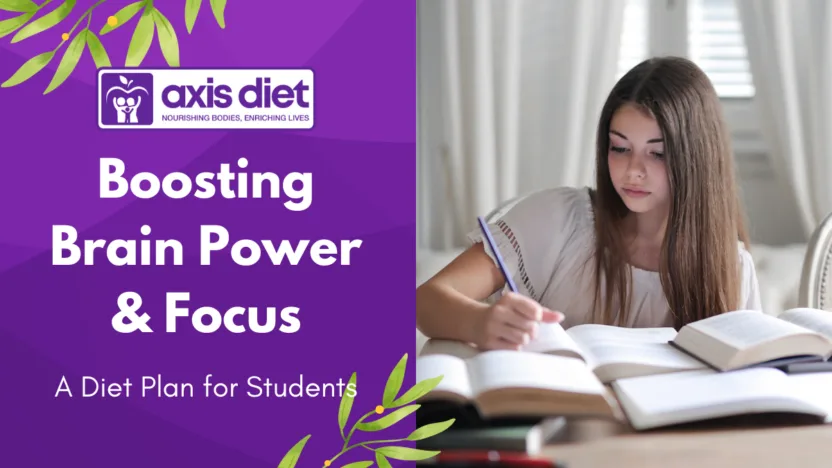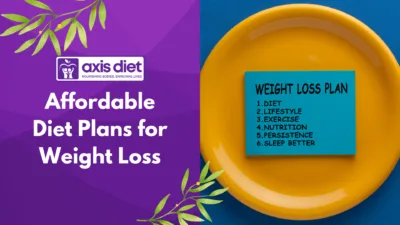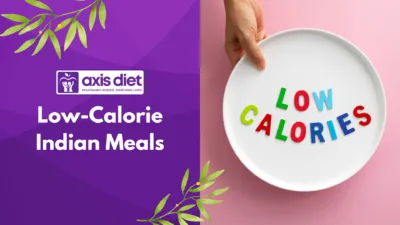In today’s fast-paced academic environment, students are often overwhelmed by the demands of their studies, extracurricular activities, and social engagements. As such, maintaining optimal cognitive function is crucial for achieving academic success. One of the most effective ways to enhance brain power and focus lies in diet. The foods we consume significantly impact concentration, memory, and energy levels, all of which are essential for effective learning and performance. This article will explore how diet influences cognitive function, highlight the best brain-boosting foods rich in omega-3 fatty acids, B-vitamins, and antioxidants, discuss the importance of hydration and healthy snacking, address the challenge of managing stress eating and late-night cravings, and provide a sample diet plan tailored specifically for students seeking to optimize their brain health and academic performance.
How Diet Impacts Concentration, Memory, and Energy
The relationship between diet and cognitive function is well documented, with numerous studies underscoring the influence of nutrition on brain performance. A balanced diet equips the brain with the necessary nutrients to function optimally, while poor nutritional choices can hinder cognitive abilities. When it comes to concentration, the brain requires a steady supply of glucose—a simple sugar derived from carbohydrates—to function efficiently. Low blood sugar levels can lead to fatigue, lethargy, and difficulty focusing, making it crucial to maintain balanced energy levels throughout the day.
Moreover, certain nutrients play particularly vital roles in enhancing memory. For instance, omega-3 fatty acids are known to promote synaptic plasticity, which is essential for learning and memory retention. The inclusion of B-vitamins, such as B6, B12, and folate, has also been linked to improved cognitive function, especially in terms of memory and mood regulation. Deficiencies in these essential nutrients can lead to cognitive decline and increased vulnerability to mental health issues, which are prevalent among students facing academic pressure.
Furthermore, antioxidants, found in a variety of fruits and vegetables, combat oxidative stress and inflammation in the brain, both of which can impair cognitive function. A diet rich in these nutrients not only enhances concentration and memory but also boosts overall mental energy by providing the necessary fuel for brain cells to operate efficiently.
Best Brain-Boosting Foods: Omega-3s, B-Vitamins, Antioxidants
For students aiming to boost their brain power and enhance cognitive performance, incorporating specific brain-boosting foods into their diet is essential. Below are critical food categories and their significance:
Omega-3 Fatty Acids
- Fatty Fish: Salmon, mackerel, and sardines are excellent sources of omega-3s, which support neuronal function and improve memory.
- Chia Seeds: Rich in omega-3s, they are a great addition to smoothies and salads.
- Flaxseeds: Ground flaxseeds can easily be incorporated into cereals or baked goods.
B-Vitamins
- Whole Grains: Brown rice, oats, and quinoa are rich sources of B-vitamins that support brain health.
- Poultry: Chicken and turkey provide sufficient amounts of B6 and niacin, which are essential for cognitive function.
- Legumes: Lentils, beans, and chickpeas are not only rich in protein but also provide B-vitamins and antioxidants.
Antioxidant-Rich Foods
- Berries: Blueberries, strawberries, and blackberries are high in antioxidants that protect the brain from oxidative stress.
- Leafy Greens: Spinach, kale, and broccoli contain antioxidants and vitamins that contribute to better cognition.
- Nuts: Walnuts, in particular, are high in DHA, a type of omega-3 fatty acid, and offer antioxidant properties.
Incorporating these brain-boosting foods into daily meals can effectively enhance cognitive functions such as concentration, memory, and creativity, all of which are vital for students navigating their education.
The Importance of Hydration and Healthy Snacking
Maintaining hydration levels is a critical yet often overlooked aspect of cognitive performance. The brain is composed of approximately 75% water, and even mild dehydration can impair concentration, alertness, and short-term memory. It is essential for students to drink plenty of water throughout the day to facilitate optimal brain function. Inadequate hydration can lead to fatigue, headaches, and difficulty focusing, making it important to establish a routine that keeps fluid intake consistent.
In addition to hydration, healthy snacking plays a pivotal role in sustaining energy levels and focus. Instead of reaching for sugary snacks or processed foods that can lead to energy crashes, students should opt for nutrient-dense snacks that provide sustained energy. Here are some healthier snacking options:
- Fresh Fruits: Apples, bananas, or berries make for refreshing and energizing snacks.
- Nuts and Seeds: A handful of mixed nuts or seeds offers healthy fats and protein to stave off hunger.
- Vegetable Sticks: Carrot or cucumber sticks paired with hummus or yogurt dips provide fiber and essential nutrients.
- Whole Grain Crackers: These can accompany cheese or nut butter for a satisfying snack option.
Incorporating these healthy habits of hydration and balanced snacking can greatly enhance academic performance and mental clarity, enabling students to manage their studies effectively.
Managing Stress Eating and Late-Night Cravings
Students often face high levels of stress, especially during exams and project deadlines, leading to emotional or stress eating. Late-night cravings can also disrupt healthy eating patterns, contributing to poor dietary choices that can negatively impact cognitive function. Understanding and managing these behaviors is crucial for maintaining not only physical but also mental wellness.
- Mindful Eating: Encourage awareness of hunger cues and emotional triggers. Practicing mindful eating can help students recognize when they are eating out of stress rather than hunger.
- Healthy Alternatives: Instead of opting for junk food during stress, students should stock up on healthier alternatives, such as air-popped popcorn, trail mix, or yogurt.
- Establishing a Routine: Creating a balanced daily schedule that includes adequate time for study, breaks, exercise, and relaxation can help alleviate stress, reducing the impulse to stress-eat.
- Late-Night Strategies: If cravings arise late at night, opt for light snacks like Greek yogurt with honey or a piece of fruit. Additionally, avoiding large meals or heavy snacks right before sleeping is advisable.
By recognizing triggers and adopting healthier coping mechanisms, students can maintain better dietary habits and manage their overall well-being, even during high-stress periods.
A Sample Diet Plan for Students
To support cognitive performance and overall health, here is a sample diet plan designed to illustrate how students can incorporate brain-boosting foods into daily meals:
Sample Diet Plan:
Breakfast:
- Oatmeal topped with sliced almonds and mixed berries
- A glass of milk or a dairy alternative
Mid-Morning Snack:
- A small apple with a tablespoon of peanut butter
Lunch:
- Quinoa salad with chickpeas, avocado, spinach, and a lemon vinaigrette
- Beetroot, Pomegranate & Cottage Cheese Salad
- Grilled chicken breast (or tofu for vegetarian option)
Afternoon Snack:
- Carrot and cucumber sticks with hummus
Dinner:
- Egg Curry with Whole Wheat Phulkas & Roasted Vegetables
- Sprouted Moong & Chickpea Salad with Lemon-Turmeric Dressing
- A mixed green salad with a variety of vegetables
Before Bed Snack:
- Yogurt with a drizzle of honey and a sprinkle of chia seeds
This sample diet plan can be customized based on individual preferences, caloric needs, and dietary restrictions. The focus should always be on incorporating foods that provide essential nutrients while keeping energy levels stable to support both academic success and overall health.
Conclusion
In conclusion, adopting a well-balanced diet is fundamental for students aiming to enhance their cognitive functioning, improve focus, and maintain optimal energy levels. A diet rich in brain-boosting foods, coupled with adequate hydration and healthier snacking habits, creates a strong foundation for academic success. Managing stress eating and late-night cravings by implementing mindful eating practices can further contribute to overall wellness. By incorporating the strategies and sample diet plan provided, students can harness the power of nutrition to support their learning and cognitive performance. The right dietary choices not only equip students for academic challenges but also lay the groundwork for lifelong healthy eating habits that benefit both the mind and body.
Axis Diet is dedicated to empowering individuals with knowledge and practical advice for healthier living. Our articles, grounded in research and expert insights, aim to simplify complex nutritional concepts, offering a comprehensive understanding of various aspects of diet and wellness. While these articles are informative and a great starting point for anyone looking to improve their health, they are for informational purposes only. For personalized, professional guidance tailored to your unique health needs, we encourage you to consult with Axis Diet’s registered dietitians. Reach out to us for expert personalized guidance on your nutritional journey.





